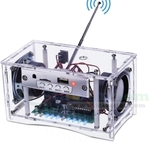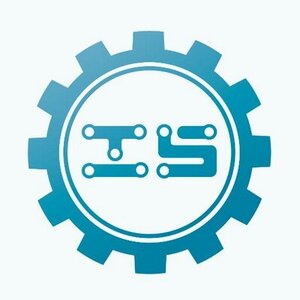Blue LED Spectrum FM/Bluetooth Audio Speaker DIY Kit, 54% off
4 Audio Input Methods: It can get audio from Bluetooth, FM, U-disk, TF card in 4 different methods.
Battery charging protection: It is equipped with 18650 rechargeable battery box. Built-in battery charging protection board to protect battery charging and discharging and prolong battery life.
English PDF installation manual available: It is a DIY kit which contain the most basic components, not only allows you to learn and practice electronic assembly skills, but also experience the music fun brought by FM/Bluetooth players.


The title says soldering, but the description doesn't say solder anywhere.
I mentioned Electronic Welding, which I presume is a translation quirk meaning solder?
Also, does it contain a soldering iron and/or would it be a good start point to learn how to solder?